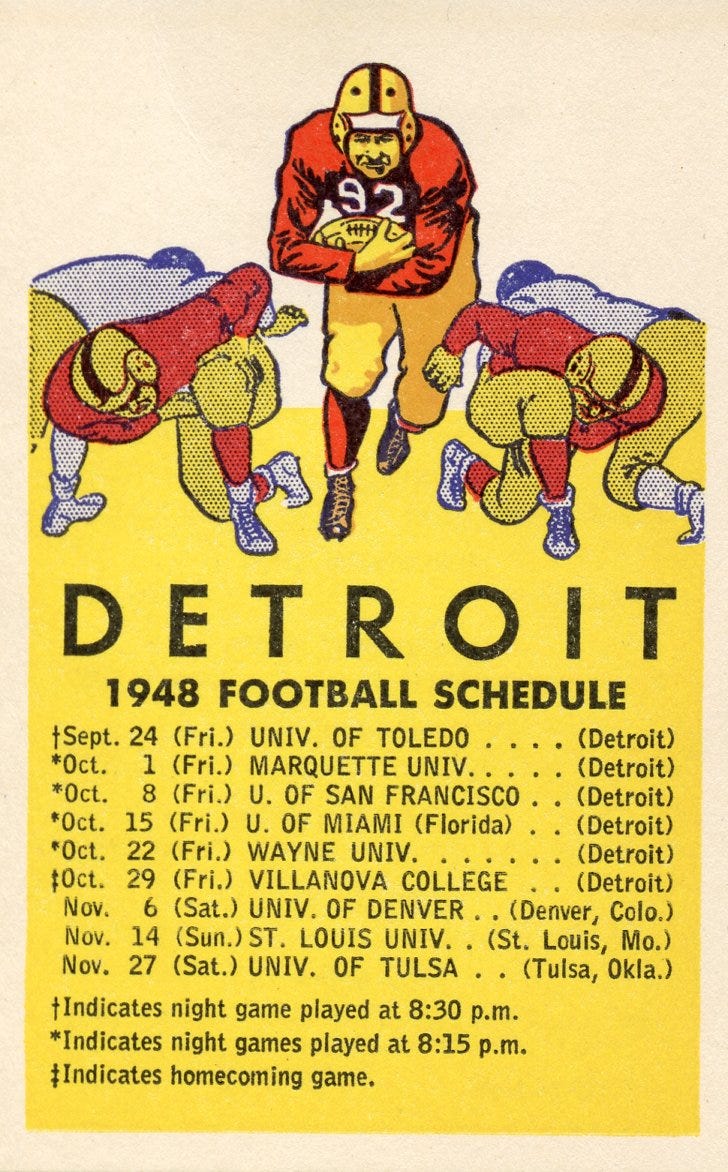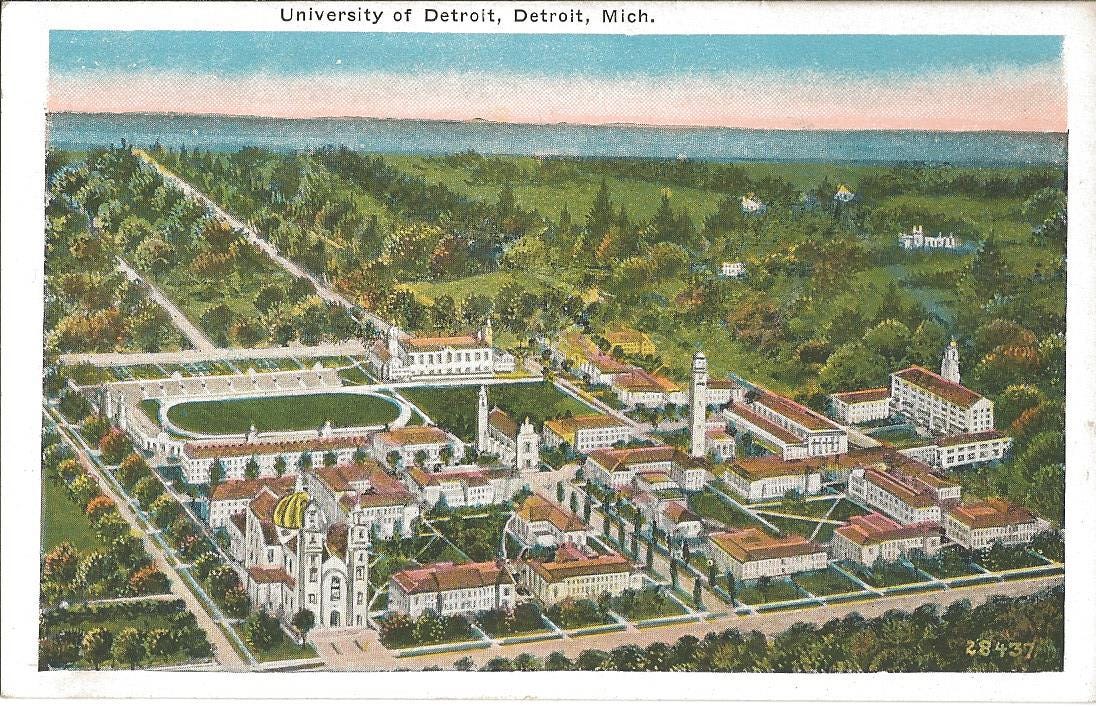Today's Tidbits... Dropping Out: University of Detroit Titans Football
It has been nearly sixty years since the University of Detroit lost a football game, the last coming in a 17-9 loss at Boston College in 1964. However, the Titans once had a proud football tradition that began in 1896, playing a mid-tier schedule competing with other Catholic and private universities, plus a few nearby public schools.
The University of Detroit football stadium opened in 1922 with a capacity of 20,000, later expanded to 25,000.
Their best season came in 1928 when they went 9-0, shutting out seven opponents, and were named national champions by Parke H. Davis. Their season-ending home victory over Georgetown attracted 30,000 fans in year four under Gus Dorais, Knute Rockne's quarterback at Notre Dame. His pass-happy halfback, Lloyd Brazil, set an NCAA record for passing yardage in a season with 997 in 1928 and led the country in rushing the next.
Some thought Dorais might build a program comparable to his old teammate. Instead, Detroit settled into a string of 6-3 or 7-2 seasons before Dorais took the Lions' job when Detroit did not field teams due to the war.

The Titans’ fortunes took a downward trend in the 1950s with four losing seasons. They righted the ship in 1960 and 1961, before three successive losing seasons and attendance dropping to 11,000 per game brought Detroit Titans football to an end. The school was unwilling to lose money on football, joining the list of urban Catholic schools that dropped the game in the twenty years after WWII.
Football Archaeology is reader-supported. Click here to buy one of my books or otherwise support the site.


